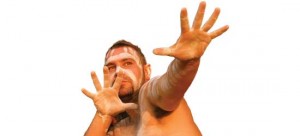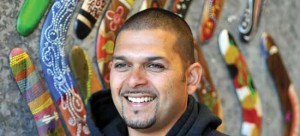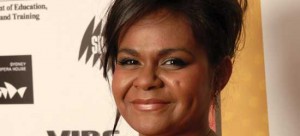The 2008 National Apology to the Stolen Generations created a vision for moving forward and healing the past for Australia. As the fifth anniversary of the Apology approaches on 13 February 2013 many emotions are being experienced. Deadly Vibe spoke to some of our people about what the Apology and its anniversary means to them.
Generation One spokesperson
What does the 2008 Apology mean to you?
Looking back on the Apology it still draws emotions in me because, unfortunately, my grandparents weren’t there to hear it. So everything about the anniversary reminds me of my grandparents. I am sure there will be lots of people who will be sharing those feelings on 13 February. But without the Apology there would be no vision for moving forward, healing the past and building the future.
Have we made progress as a nation since 2008 to acknowledge and recognise the Stolen Generations?
The Apology was a great symbol in taking action, but I think there is more to be done, a long road ahead. The more we can do around the education of the healing of all those affected, either directly or indirectly, is not done by one word – it needs to be followed up with action.
What would you like to see done to heal the intergenerational trauma of the Stolen Generations?
Until we create discussion and increase public knowledge about intergenerational trauma, how can we possibly look at resolving it? And we need to start looking at our youth, so that the healing starts for our kids. In an ideal world, the healing involves building an Indigenous identity on the positives of what it means to be Aboriginal in our country. I look forward to witnessing the free celebration of success of Indigenous academics, sportspeople and those in the arts.
What are some of the ways we can heal the past to build the future?
The healing is only just beginning. The building of the future is bright and as Aboriginal people we are the ones that have to build our future. Some ways this can happen are through education, including education about healing, and greater celebration of Indigenous achievements.
Actor, Youth spokesperson
What does the 2008 Apology mean to you?
The Apology rightly received a great deal of recognition in Australia. I remember watching the Apology at school and thinking this was a huge moment in history. The Apology showed that the Government finally acknowledged the suffering that was brought to many Indigenous Australian communities and families, and it made me proud to know that Australia was taking another step towards acknowledging the history of our people.
Have we made progress as a nation since 2008 to acknowledge and recognise the Stolen Generations?
The Apology did bring a sense of closure to many of our people and has made the wider Australian community aware of the injustices our people have suffered.
What would you like to see done to heal the intergenerational trauma of the Stolen Generations?
Recognition and an apology go
a long way to healing past wrongs, but the social consequences of the Stolen Generations have continued and our people need to be supported through this healing process.
What are some of the ways we can heal the past to build the future?
We need to recognise the past, acknowledge what happened and learn from our history.
Musician and student of medicine
What does the 2008 Apology mean to you?
It was recognition of the past that had been denied for so long by the previous Prime Minister, John Howard. Even though we had government reports, we still had no acknowledgement of the Stolen Generations. To have the leader of Australia apologise when he wouldn’t have had support for it from the mainstream was something I remember. I still have respect for [former Prime Minister] Kevin Rudd because of that.
Some of my family were taken and are a part of the Stolen Generations, and even now they are still coming to terms with where they fit.
There has been a shift in attitude and a change in the wider community since the Apology. I do some lecturing in Aboriginal studies at university
and during
the [Prime Minister] Howard years the behaviour was different. But I noticed a change after the Apology – people were open to what I had to say. It built empathy.
Have we made progress as a nation since 2008 to acknowledge and recognise the Stolen Generations?
In another respect I don’t think we’ve made progress. There are Elders who are members of the Stolen Generations who went through that trauma and don’t even have a house to call their own. We’ve got to take care of them. We have to make simple changes and ask them ‘What do you want?’ and ‘What can we do for you?’ It’s one thing to have policy at government level, but another to look after the practicalities.
What would you like to see done to heal the intergenerational trauma of the Stolen Generations.
The ‘Bringing Them Home’ report is a first step but we need to go further. Children and grandchildren have lost their attachment to their mob, language and traditional ceremonies, and we need to concentrate on restoring that. If there’s better social and emotional wellbeing then kids are more likely to go to school, get a job or go to university.
What are some of the ways we can heal the past to build the future?
You can never move forward while you’ve got something on your back. In my personal experience holding stuff in doesn’t work, you need to talk about it – this is what happened in the past and this is how it is affecting me now. Years ago I yarned with a lot of Elders and they were all talking about Sovereignty. I’m all behind a Congress that is part of the Western political system, but we should be setting the standards not whitefellas.
Actor, Singer/Songwriter
What does the 2008 Apology mean to you?
I have great memories of the day but can’t help feeling a bit cynical about it now. On that day I was in Redfern with my family. To be surrounded by mob, especially the older ones, and hear a Prime Minister acknowledge some of our suffering was truly a moving experience. It was not only important recognition of past suffering and an acknowledgment by Government of their role but I also remember feeling that it was the beginning of an important change and something great for our nation. I have seen little evidence of that since. In fact, despite the promise of change we continue to have policies like Stronger Futures that are imposed on us and not developed by us.
Have we made progress as a nation since 2008 to acknowledge and recognise the Stolen Generations?
Yes and no. People seem to be more aware that something terrible happened. But there is still this tendency to want to forget. When it comes to Australia’s war history it is ‘Lest we forget’. When it comes to our Aboriginal history it’s ‘Let’s forget’. As a nation we must be constantly reminded that this and other awful things did happen. The intergenerational trauma is still fresh and mostly untreated. I believe that strength begins with a sense of belonging and for those who were stolen there will always be a hole. A life damaged like that can never be made completely whole.
What would you like to see done to heal the intergenerational trauma of the Stolen Generations.
There is no simple answer to that. As a mother
I know it takes so many different things to keep a child healthy and whole. Deep healing takes much time. It takes honesty, trust, many hours of listening and then genuine action. And each person is different, so you can’t take a one glove fits all approach. I’d like to see that kind of individualised and comprehensive approach being supported.
What are some of the ways we can heal the past to build the future?
It’s hard to build a solid foundation while we are still hurting. We have to heal the terrible things that happened to us and we have to find it within us to forgive those who did awful things and those who continue deliberately or through ignorance or greed to hurt us.
The most important thing we can do is to hold strong to our culture. While some degree of assimilation is unavoidable we must hold on to as much culture, language and connection to land and family as we can. This is the source of our strength. From there we can demand that Government respect and understand us and deal with us with the same respect for culture as if they were dealing with a foreign nation.




Comments are closed.